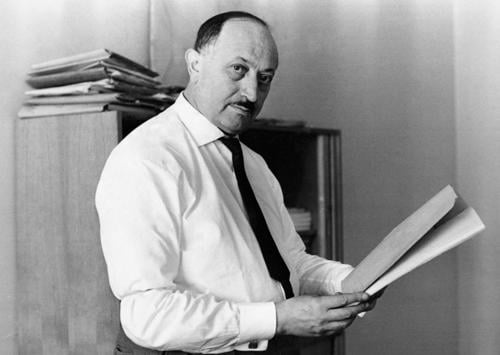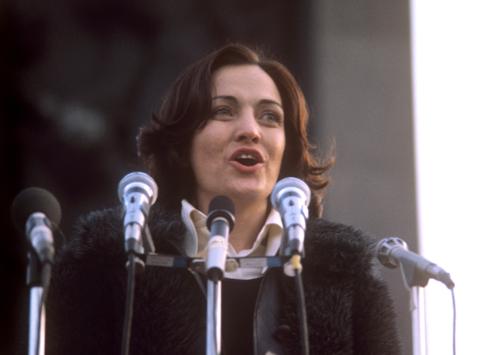Listen to New Voices on Studs Terkel our partnership with 826CHI-here! Read the Story
Showing 1 - 15 of 46 results
-
Uri Davis discusses the Arab-Israeli conflict ; part 2
Uris Davis, academic and pacifist, discusses political tension during the Arab-Israeli conflict and his views of pacifism in relation. Includes an interview with author Ronald Fair who discusses crime, urban life, and race relations. Content Warning: This conversation has the presence of outdated, biased, offensive language. Rather than remove this content, we present it in the context of twentieth-century social history to acknowledge and learn from its impact and to inspire awareness and discussion.
-
Uri Davis discusses the Arab-Israeli conflict ; part 1
Uris Davis, academic and pacifist, discusses political tension during the Arab-Israeli conflict and his views of pacifism in relation. Content Warning: This conversation has the presence of outdated, biased, offensive language. Rather than remove this content, we present it in the context of twentieth-century social history to acknowledge and learn from its impact and to inspire awareness and discussion.
-
Tim Pat Coogan discusses his book "The IRA: A History"
Dec. 1, 1993 Author and historian Tim Pat Coogan talks about the history, culture, and division of Ireland. Coogan tells the backstory and summary of his book, "The IRA: A History." Later, he gives an in-depth view of the history, politics, and religion of the IRA and gives some ideas on how to fix the problems.
-
Tim Pat Coogan discusses his book "The IRA: A History"
Dec. 1, 1993 Author and historian Tim Pat Coogan talks about the history, culture, and division of Ireland. Coogan tells the backstory and summary of his book, "The IRA: A History." Later, he gives an in-depth view of the history, politics, and religion of the IRA and gives some ideas on how to fix the problems.
-
Three Vietman War veterans, Robert Black, Robert Johnson, Dr. Gordon Livingston, and Steve Perriman discuss the war, part 2
Nov. 13, 1973 Robert Black, Robert Johnson, Dr. Gordon Livingston, and Steve Perriman talk about the Vietnam War. All three are officers in the military and veterans of the Vietnam War. They discuss their lives before and after the war and the contradiction and changes that came after seeing the horrors of the Vietnam War.
-
Three Vietman War veterans, Robert Black, Robert Johnson and Dr. Gordon Livingston, discuss the war, part 1
Nov. 12, 1970 Robert Black, Robert Johnson, and Dr. Gordon Livingston talk about the Vietnam War. All three are officers in the military and veterans of the Vietnam War. They talk about the Tet offensive and the Battle of Hue in 1968, and the deplorable treatment of the Vietnamese people by the United States military . Upon returning they have chosen to become anti-Vietnam War because it is not a struggle to stop Communism so much as being a force of destruction.
-
Sister Margot Lloran talks with Studs Terkel
Jan. 29, 1986 Discussing the political situation in the Philippines and the human rights organization Task Force Detainees of the Philippines (TFDP) with Sister Margot Lloran. The TFDP works with the Filipino people to craft a response to militarization.
-
Simon Wiesenthal discusses World War II and The Sunflower
Mar. 12, 1976 Simon Wiesenthal discusses his advocacy work after surviving the Holocaust and the publication of The Sunflower in 1969.
-
Pat Duncan discusses Apartheid and South Africa ; part 1
1963 South African anti-apartheid activist Pat Duncan discusses Apartheid and South Africa, part 1.
-
Nobel Peace Prize recipient Mairead Corrigan Maguire discusses the struggle for peace in Northern Ireland, and around the world
Dec. 1, 1993 Nobel Peace Prize recipient Mairead Corrigan Maguire discusses the struggle for peace in Northern Ireland, and around the world. Maguire, an Irish peace activist, founded Community of Peace People.
-
Molapantene Collins Ramusi discusses his book "Soweto, My Love"
Apr. 10, 1989 In his book, "Soweto, My Love: A Testimony to Black Life in South Africa" Molapantene Collins Ramusi talks about the love for his homeland and one day hoping to see it free. Ramusi also talks about going to the 1st grade when he was 17. Ramusi became a lawyer to defend the defenseless. He was a warrior in the courts, defending widows who were told they were breaking the law by living in an apartment that belonged to their dead husbands.
-
Mary Harding discusses her time in a Bolivian prison
Apr. 30, 1973 Former ex-nun Mary Harding was accused of being a part of a group that was going to overthrow the Bolivian government. At the 1st meeting with counsel from the American Embassy, Harding could barely walk because she was kicked and punched over and over for information. Harding spent 4 of the 5 weeks in prison in solitary confinement.
-
Joseph Collins discusses the book "Food First"
Oct. 28, 1977 Dr. Joseph Collins co-authored the book, "Food First: Beyond the Myth of Scarcity". Among the topics in the book include world hunger, famine, food policies and politics. Collins asks the readers to think about being ok with eating food grown in another country when the workers of that country are so poor, they themselves are starving for food.
-
John Tateishi talks about his book "And Justice for All"
Jun. 22, 1984 Tateishi discusses his collection of oral histories by Japanese-Americans who were interned in 1942. Includes excerpts from Minoru Yasui, Yoriko Hohri (featured in "The Good War"), Peter Ota and a friend of Studs' who was ordered to terrorize Japanese-Americans as part of his military duty.
-
Jennifer Davis, Bill Sutherland and Zola Zembe discuss South Africa and apartheid
Feb. 27, 1979 Jennifer Davis, Bill Sutherland, and Zola Zembe discuss the South Africa and their experiences with apartheid. Jennifer Davis grew up in the white middle class society of Johannesburg, whereas Zola Zembe, a native black man who lives in Capetown. They, along with Bill Sutherland, an American who works as a Representative for the American Friends Service Committee, talk about the changes that need to made and how American people and companies can help. An earlier interview of Carl Douglas Fuchs is also played.




